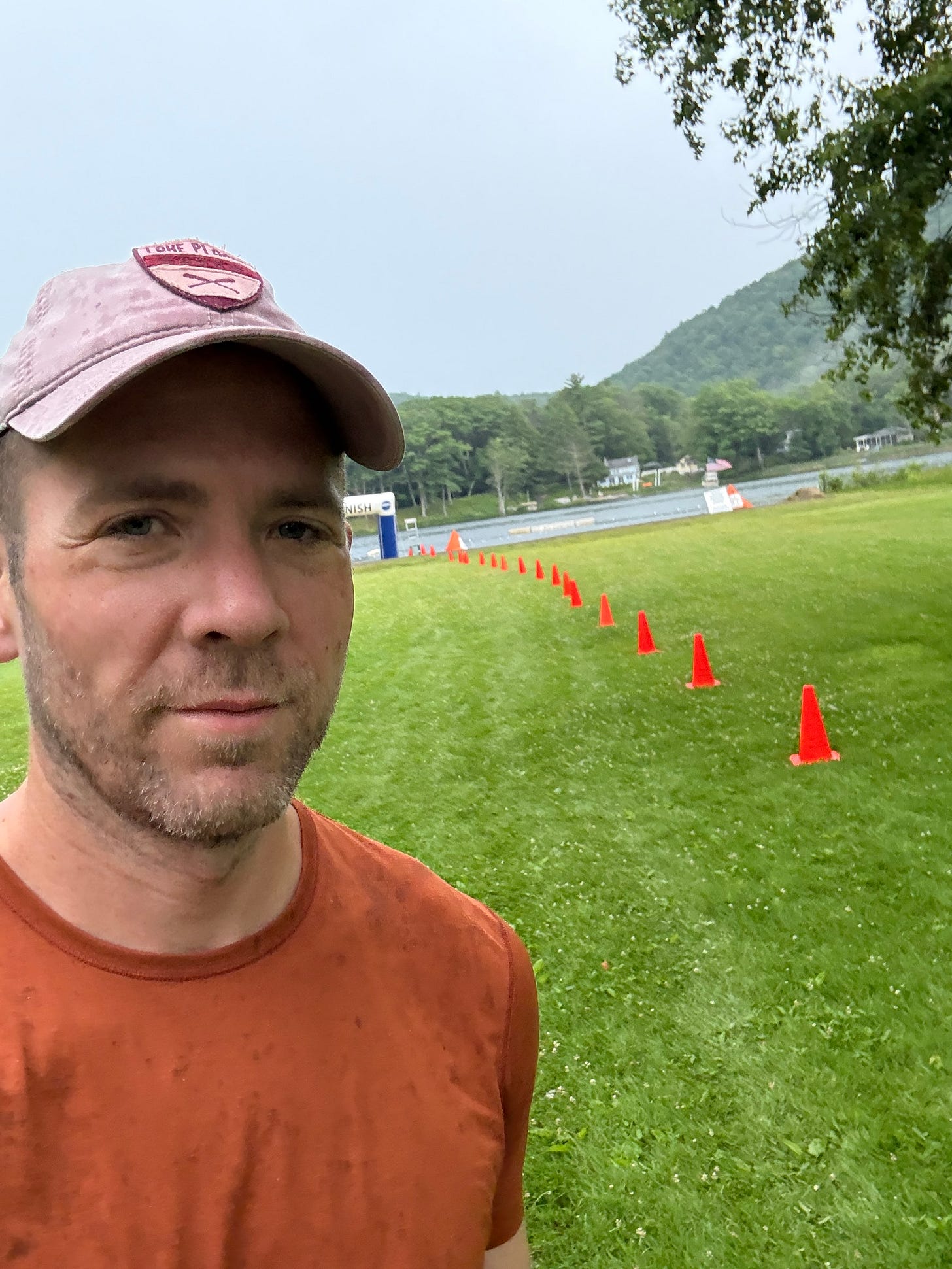Pine Plains
This is Western Coffee—notes on building the creative body. Last time: Change. The whole series is here.
The 20-minute drive from James’s house to the town of Pine Plains, N.Y., is lamentably familiar, because it’s home to one of the better restaurants in the country—a reinvention of a former inn and tavern whose patrons included George Washington and the Marquis de Lafayette. Today you could justify going there for the butter and nothing else. During a period in life when I’m trying to get the per-portion cost of my Sunday meal-prep pots down to three dollars, it’s a splurge. Last time James and I went for dinner, I looked around the room and pointed out (over a coal-roasted dayboat scallop and a martini with the house-made vermouth) how perfectly the people we’ll soon be, a celebrated novelist and a Broadway scenic designer, fit in with the clientele. We’re just not there yet. But we are—there. Sometimes. Anyway, I know the way to Pine Plains.
On Sunday morning, the journey along State Route 82 introduced a new consideration: lightning. You might recall that a triathlon, which is what I was there for, starts in a body of open water. After the first couple of flashes on the road, I thought about calling it and heading home, but there was no cellphone signal to check the weather forecast, and it seemed a little chicken to back out when the storm might be but a memory by the time I had my wetsuit on.
What followed was one of those sequences of experience that crack open the utilitarian architectures of training and tapering and recovery and nutrition and equipment prep and place you, in the daze of early morning, on an ideal of a country road, climbing a mountain you didn’t bother to know was there, heaving with breath, soaked from head to toe in the undifferentiated waters of lake, rain, and sweat. Ever since I first got on a road bike, in Venice Beach 20 years ago, this has always been the reason to keep doing it—this dissipation of constructed things, this encounter with the world as you’ve never seen it and never will again, because you’ll never be foolish enough to hop into Stissing Pond under so much as the rumor of lightning, because this road will never be exactly this wet and cool and fresh, because the textures and shades of green as they appear after an overnight rain in June—while I hope they’ll recur for much more time than we can contemplate—will never fall on eyes coated in the same level of moisture and ambient luminescence, traveling at a furious 22 miles per hour in something like silence.
I believe, with some urgency, in those utilitarian architectures, because they get you to the door. Behind the door can and often does lie more of what is familiar. But behind the door can also lie a vision that is just yours, just for now, and if you’d turned around, even just out of caution, you’d miss it forever.
Please share this email. Sign up free or, if you’ve done that and enjoy the newsletter, sign up for a paid subscription to support my work. Kindly send me your thoughts, questions, and provocations: dmichaelowen@gmail.com.



